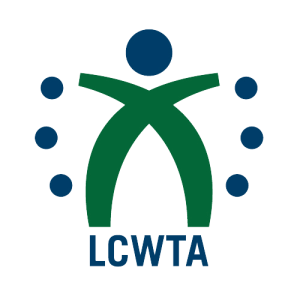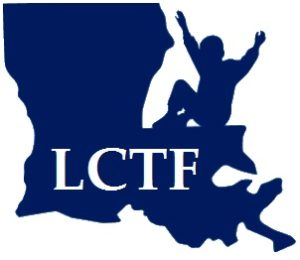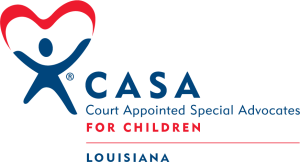Calendar

Parenting is challenging, particularly when you are parenting a child from a hard place. Children from hard places include children who experienced distress in the womb or during delivery, were hospitalized early in life, were abused or neglected, or experience trauma, whether natural or man-made. Trust-Based Relational Intervention® Introduction & Overview will focus on understanding the meaning of child behaviors, the brain chemistry of a child from a hard place, and how to help children and families heal and connect. This multi-disciplinary training is designed to give caregivers, volunteers, and professionals who serve children and families the knowledge and practical skills they need to bring hope and healing.

Join us for an enlightening session on “Identifying and Providing Mental Health Services for At-Risk Children,” hosted by the Louisiana Children’s Trust Fund. This virtual event is designed for educators, mental health professionals, attorneys, caregivers, and community members dedicated to supporting the mental well-being of vulnerable children. Our speakers will provide information about the challenges faced by at-risk children, the signs of mental health issues, and the most effective methods for providing the necessary support and services. Participants will leave with a deeper understanding of the mental health needs of at-risk children and practical strategies to ensure they receive the care they deserve.

The civil rights movement of the 1950s and 60s prompted educators and health and human services professionals to develop cultural competence. The belief was, if the mostly white practitioners increased their knowledge of diverse racial and ethnic groups’ values and customs, they could improve the delivery of services to diverse populations. While cultural competence was a step in the right direction, it inadvertently reinforced and created stereotypes about cultural practices and experiences that fell short of achieving its goal of supporting culturally sensitive service delivery.
In this two-part training session, participants will learn the importance of cultural humility: suspending cultural assumptions and, instead, embracing individuals’ personal definitions and expressions of culture. Participants will explore cultural humility by defining their own personal culture using a myriad of identity factors (e.g., skin color, ethnicity, age, gender, sexual orientation, socioeconomic status, and ability) and determining whether those identity factors place them in privileged or marginalized groups, or both. They will learn how the intersections of various identity factors create a unique cultural experience for every individual and how these intersections result in systemic power differentials and complex experiences of oppression. Finally, they will apply their cultural identity to the framework of the Cage of Oppression and, using the example of lookism, evaluate how existing power structures impact their lives and the lives of those they serve. By recognizing the societal effects of intersectionality, participants will be challenged to incorporate cultural humility in their personal and professional interactions.

The 24th National Conference on Child Abuse and Neglect (NCCAN), sponsored by the Children’s Bureau, will be held April 1–3, 2025, at the Bethesda North Marriott Hotel and Conference Center in Rockville, Maryland. Innovative sessions will focus on developing ideas-to-action strategies that provide opportunities to exchange ideas and learn what works from community members and peers. The conference will also offer plenaries, workshops, posters, and exhibits, that highlight Children’s Bureau priority areas. So, mark your calendars now—additional information is coming soon. We look forward to seeing you there.

CWLA’s evidence-informed model of practice, Traditions of Caring and Collaborating addresses the unique strengths and needs of kinship caregivers, formally involved through child protective services or through informal family arrangements. This model is responsive to the needs and experiences of kinship caregivers recognizing the dynamics unique to the inherited role of being someone’s grandparent, other relative, or a non-related extended family member and the acquired role of volunteering to foster. This two-part training opportunity provides an overview for identifying areas of concern for kinship families and agency staff who work with them including: legal, financial, family relationships, health and mental health, child behavior, fair and equal treatment, satisfaction and recommendations. It will highlight the competencies needed to support kinship caregivers through phases of collaboration aimed at achieving the three federally mandated outcomes for all children: safety, well-being, and permanence.
Facilitator: Marcus Stallworth, CWLA Director of Training & Implementation

Although race is merely a social construct, it has fractured American society for centuries. Race has been the impetus for war, both historically on the battlefield and, in more recent times, on the streets of America and around the globe. Do we really understand the power race holds while being only an illusion? Moreover, what trauma is caused by race and its influence on laws, policies and individual behaviors? This three-hour training session begins the critical conversation about the intersection between race and trauma, and its impact on us as individuals and collectively.

Promoting Positive Change in Communities by Confronting Poverty
Louisiana CASA is excited to host our third webinar series. This series is brought to you in partnership with the Louisiana Children’s Trust Fund so we are required to ask participants certain demographic questions during registration. Once you register, an email will be sent to you that includes the link to join the webinar. We hope to see you there!
Building Community Engagement
Child poverty remains a critical challenge, affecting families across the nation. To create lasting change, we must come together as a community. Join us as we explore strategies, resources, and collaborative approaches that empower families living in poverty. Together, we can build resilience and foster well-being for children and their caregivers.
